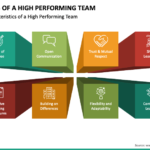Are busy teams really productive? This is something I often reflect on for both myself and my clients. I know that in the past I have confused busyness with being productive but increasingly I have come to realise that they are not the same things.
As Socrates, the ancient Greek philosopher notes “Beware the barrenness of a busy life.” A team or individual can be really busy but not productive, and so not achieve the results they were hoping for. Just think about it. You can spend all morning on social media and clocked up hours in the office but have you really been productive and moved your business towards its goals.
Here are 5 ways to decide if you are being busy or productive:
1. How measurable are your goals? Everything you do should be aimed toward accomplishing something profitable. Clarify your goals with your team if they are confused about the current priorities. If you can’t tell how a team member’s daily activity moves you toward your goal in some way, it’s likely they are busy rather than productive. Always track the results of your efforts to reach your goals with easily readable metrics.
2. What tasks can you remove? Examine every task your team undertakes. Is it really necessary? If not, is it still productive or profitable? If it fails that test, it’s subject to elimination or severe streamlining. For a number of years, I created a monthly newsletter full of great content but I never bothered to ask you if you found it valuable. Once I did I changed tact and now deliver you Wednesday Wisdom which is shorter and more concise.
3. How’s your Return on Investment? Does your team’s output consistently earn the organisation more than it pays all of you? If not, start honing your Personal ROI (PROI). Outsource tasks that people outside your team can do more effectively and less expensively, stop doing tasks below your pay-grades, and as a leader, don’t micromanage. Always look for a more productive or profitable alternative to every task. For example, I’m not an expert at building marketing funnels I could spend time figuring it out, but it’s not worth my time, versus a trained expert who can build in quickly and effectively.
4. Check your meeting meter. As you rise in leadership, you’ll be spending more time in meetings, because they represent your “work,” where decisions are being made. But they can definitely steal your time if you’re not careful. If a meeting doesn’t come with a purpose, an agenda, and decisions to be made, skip it. Leave at the promised end time. Encourage others to be brief and to the point with their concerns and comments.
5. Is your social media helping or hurting? Maybe social media represents the wave of the future, but it can be a huge timewaster. Is it even something that your team directly profits from using? Is it necessary for doing your job, such as marketing, PR, or HR? If not, skip it at work. Not everyone needs to be using Facebook pages and Twitter at work. Appoint someone to deal with it using the latest tools to maximise time use, or outsource it if you can do so less expensively.
6. Are you proactive or reactive? Do you and your team leap into action only when prodded, or do you review your strategy on a regular advance basis, so you constantly greet change with enthusiasm?
RESULTS RULE.
At the end of the day it all boils down to this: productive teams produce results. Busy teams produce more busywork. Unless you work for an organisation where results aren’t always immediately apparent, like an international charity, it shouldn’t take you more than five minutes to determine whether or not you and your team are productive.
Finally, as John Wooden, an American college basketball coach notes. “Don’t confuse activity with achievement.”
–

Julia Felton (aka The Business Wrangler) is the founder of Business HorsePower. Business leaders, entrepreneurs and executives hire her to accelerate their business performance by harnessing the energy of their people to work more collaboratively together. By aligning purpose with actions the team achieves exponential results as everyone starts pulling in the same direction.
Julia believes that business is a force for good and through designing purpose-driven businesses that leverage the laws of nature, and the herd, you can create businesses founded on the principles of connection, collaboration and community that make a significant impact in the world.






